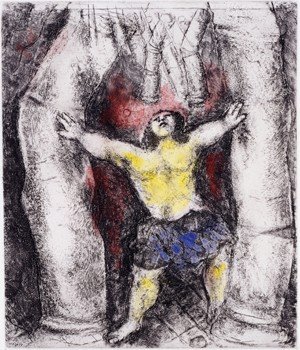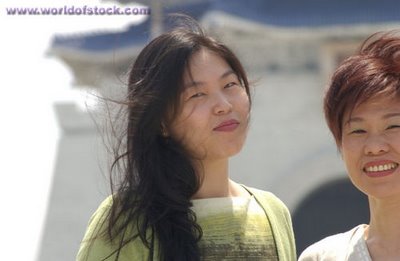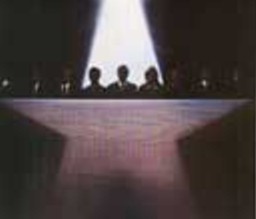 Justice Sidney Linden's report on the killing of Dudley George was released today. It's a scathing one, uncovering a tangled tale of incompetence, stupidity, lies and racism at every level of the operation, from Premier Mike Harris' office down to racist OPP thugs on the ground:
Justice Sidney Linden's report on the killing of Dudley George was released today. It's a scathing one, uncovering a tangled tale of incompetence, stupidity, lies and racism at every level of the operation, from Premier Mike Harris' office down to racist OPP thugs on the ground:Speaker 1: No, there's no one down there. Just a big, fat, fuck Indian.
Speaker 2: The camera' [sic] rolling.
Speaker 1: Yeah. We had this plan, you know. We thought if we could...five or six cases of Labatt's 50, we could bait them.
Speaker 2. Yeah.
Speaker 1. And we'd have this big net or a pit.
Speaker 2: Creative thinking.
Speaker 1: Works in the south with watermelons.
This is but one example in the Linden Report of the overtly racist behaviour by OPP officers, whose additional blundering and sheer incompetence led to the shooting death of an unarmed protester, a member of a group occupying Ipperwash Provincial Park. The latter, the subject of a Native land claim, is close to Kettle and Stoney Point First Nation territory that was confiscated during World War II by the Department of Defence, and that somehow has not yet been returned to the band.*
The judge does an exemplary job of tracing the roots of the conflict, providing considerable background history and context for the tragedy. His measured words are an example of what such a report, long overdue as it is, should be.
Proceeding to the killing itself, Linden documents a near-complete breakdown of communications within the police command structure. The police didn't even communicate with each other, let alone with the Aboriginal protesters. While the police had a tacit understanding that they would not enter the park itself, this was never communicated to the protesters, who feared eviction at any time. The skirmish line was a sandy parking lot just outside the park, which the police were determined to keep clear.
Undue pressure for a hasty conclusion to the occupation, emanating directly from the Premier's office, was transmitted down to the ops level, where two police teams, one in full riot gear, and both operating on conflicting and unverified information, moved in under cover of darkness. Reports of automatic weapons fire by the protesters, and of a car driven by a female passenger being attacked by Native occupiers armed with baseball bats, proved later to be groundless.
The culminating incident occurred after the protesters had moved back from the parking lot into the park--where, as noted, they did not know that they were in fact safe. A dog belonging to one of the protesters ventured into the parking lot and was immediately kicked by a moronic police officer, at which point protester Cecil George went back into the parking lot, convinced that the police were about to launch a full assault. He was, in Justice Linden's words, "excessively beaten on his head and face" then and there, by officers without badge numbers or nameplates, leading to more Native people emerging form the park to help him. From there, matters quickly escalated, and shortly afterwards Dudley George was dead.
In the course of his investigation, Justice Linden does absolve Mike Harris from the accusation that he directly interfered in police operations, but he finds that a sense of urgency transmitted by the Premier's office led to the closing off of options that might have achieved a peaceful resolution. And, although he doesn't use the word, he found that Harris lied on the stand when he denied saying "I want the fucking Indians out of the park," a statement that the Justice describes, not mincing words, as racist. As for Acting Sergeant Ken Deane, the man who shot George, and who was later convicted of criminal negligence, Linden manages to call him a liar on several occasions but once again without actually using the l-word--words like "implausible" are used instead. I admire his restraint.
Now we shall see whether the excellent recommendations at the end of Linden's voluminous report are taken up by the McGuinty government, whose spokespeople are already putting the kind of spin on the matter that indicates a wish to buy time. As for the federal government, cleaning up and returning the confiscated land to the Kettle and Stoney Point First Nation, Linden's Recommendation #19 in Volume I of the Report, would make a good start.
__________
*In 1998, the federal government agreed to clean up and transfer the confiscated land to the Kettle and Stoney Point First Nation, and to pay compensation to band members. But at present, title to the land still remains with the Department of Defence.
















